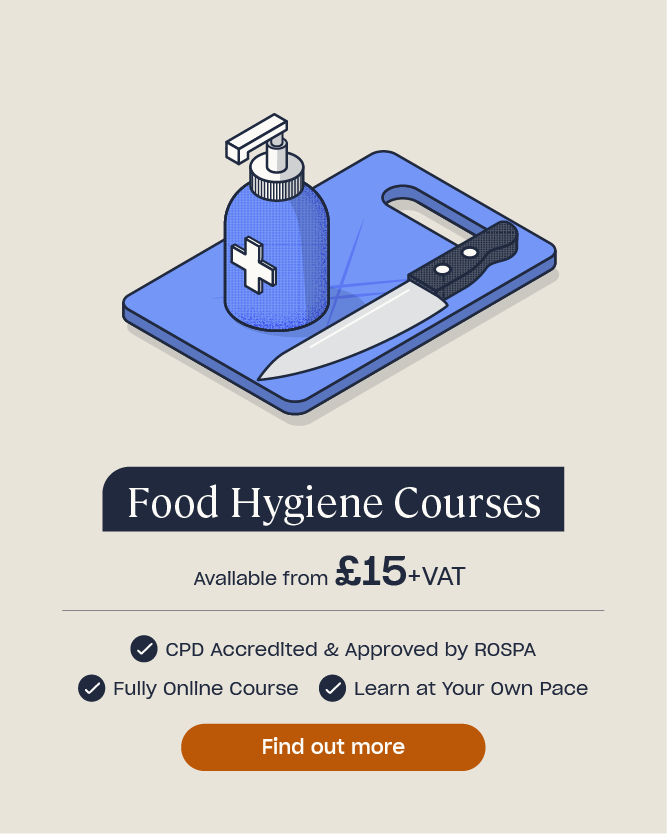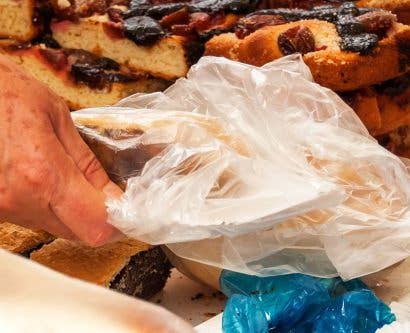What You Need to Know About the SALSA Standards
Certification to the SALSA Standards is a great way for small UK food and drink businesses to prove to buyers that their products are safe and legal. The SALSA certification scheme is aimed at small local and regional suppliers and is tailored specifically for micro-sized operations. In this article, we’ll look at what SALSA accreditation is and who it’s for, how to achieve SALSA certification for your small food business and provide a SALSA audit checklist for each of the four SALSA standards.
What is SALSA Accreditation?
SALSA stands for Safe and Local Supplier Approval. SALSA accreditation has been developed by experienced food safety experts as a certification scheme to support small food and drink businesses and suppliers in the UK.
Over recent years, the popularity of locally and regionally sourced foods has increased, as has the number of small businesses that create them. Whilst sourcing food and drink locally has many benefits – for the environment, for consumers and for the economy – the legal requirements and safety procedures need to be just as robust as those of their larger, multinational counterparts.
SALSA certification enables small UK food businesses to achieve a certificate that proves their food hygiene and food safety management credentials. The scheme is designed to encourage small and micro businesses to ensure the food and drink they produce is consistently safe through effective practices and controls.
The SALSA Standard
The SALSA standard aims to ensure food businesses are meeting legal requirements and achieving best practice in all aspects of their organisation. It was created by experienced food safety experts, including The Food & Drink Federation, NFU and UK Hospitality.

SALSA offers four different Standards to meet the different needs of the UK food industry:
SALSA Food and Drink Production
The food and drink standard is for small UK food and drink businesses that operate from a commercial kitchen. The Standard covers the legal requirements of food producers and ensures organisations meet the expectations of professional buyers.
SALSA Brokers, Storage and Distribution
The food brokers, storage and distribution (BSD) standard is for small businesses that put products on the market but which they haven’t manufactured themselves. For example, wholesales, specialty food distributors and brands that outsource their manufacturing.
SALSA Plus Beer
The SALSA beer standard was created in association with Cask Marque and includes a special module on brewing. The ‘plus Beer’ Standard is ideal for small and micro breweries in the UK, as the requirements are tailored to small-scale operations.
SALSA Plus Cheese
The SALSA cheese standard was created in association with the Specialist Cheesemakers Association and includes a special module on cheesemaking. The ‘plus Cheese’ standard is designed especially for small and micro cheesemakers in the UK.
How to Achieve a SALSA Accreditation
In order to achieve SALSA accreditation, your business must be based in the UK, operate from a commercial (not domestic) premises and have between 1-50 full-time employees. Businesses that fall outside of this remit cannot obtain SALSA certification.

To achieve SALSA certification, you’ll need to:
- Purchase the relevant membership package from the SALSA website.
- Arrange for an audit of your business to be conducted by a SALSA auditor.
- Prepare your business for audit, ensuring you meet all the requirements of the standard.
- Accompany the SALSA auditor during their inspection.
- If the auditor determines you’ve met the requirements of the standard, then your business will receive SALSA certification.
SALSA Certification Requirements
Food and drink businesses are only able to obtain SALSA certification if they can demonstrate to the auditor that they are committed to meeting the requirements of the relevant SALSA Standard. Suppliers must be able to prove that they can produce safe and legal food and drink products.
A large part of the SALSA certification requirements is ensuring everyone in your food business has received relevant and up-to-date training. Running a successful, safe and legal food business requires members of staff to have robust knowledge on relevant processes and procedures, including:
- HACCP Training
- Food Allergen Awareness or Food Allergens in Manufacturing
- Cleaning in Food Premises
- Food Labelling Regulations
- Pest Control
- Internal Auditing
- TACCP and VACCP
- Health and Safety in Food Premises
Want to Learn More?
As a starting point for all food and drink businesses, it’s recommended that you take a training course in food hygiene and safety to learn the basics and ensure your knowledge of food safety procedures remains up-to-date. To find out what food hygiene certificate you need, take a look at our Food Hygiene Certificate Guide, or view our full range of online Food Hygiene Certificates here.
SALSA Audit Checklist
During a SALSA audit, a nominated person will need to accompany the auditor whilst they inspect all areas of your HACCP food safety management system, checking each aspect of the premises and production process against the relevant SALSA Standard. The SALSA audit process takes around 5-6 hours.
Use the SALSA audit checklist below to learn which key areas of your business the auditors will look at:
SALSA Food and Drink Production Standard and SALSA plus Cheese Standard Audit Checklist 
- Training and Supervision
- Personal Hygiene
- Cleaning
- Allergen Management
- Process, Environment and Equipment Control
- Control of Suppliers and Raw Materials
- Stock Control
- Waste Control
- Pest Control
- Equipment
- Maintenance
- Vehicle Management, Storage and Distribution
- HACCP Scope and Team
- Product Description
- Intended Use
- HACCP Process Flow Diagram
- Hazard Analysis
- Control Measures/Prerequisites
- Risk Assessment
- Critical Control Points
- Critical Limits
- Monitoring Procedures
- Corrective Actions
- Verification
- HACCP Documents and Records
- HACCP Review
- HACCP Personnel
- Food Safety Systems Review
- Non-Conformance Investigation and Corrective Action
- Traceability
- Managing Incidents
- Document Control
- Manufacturing and Finished Product Specifications
- Labelling Control
- Product Shelf-Life and Product Testing
- Premises Approval
- External Areas and Product Security
- Site Layout and Methods of Working
- Building Structure, Services and Fabrication
SALSA Brokers, Storage and Distribution – Audit Checklist 
- Training and Supervision
- Personal Hygiene
- Cleaning
- Contamination/Cross-Contamination Prevention
- Process, Environment and Equipment Control
- Control of Suppliers and Subcontracted Service Providers
- Stock Control
- Waste Control
- Pest Control
- Equipment
- Maintenance
- Labelling Control
- Vehicle Management, Distribution and Storage Control
- Product Shelf-Life and Product Testing
- HACCP Team
- HACCP Flow Process/Diagram
- Hazard Analysis
- Control Measures
- Risk Assessment
- Critical Control Points
- Control Measures/Critical Limits
- Monitoring Procedures
- Corrective Actions
- Verification
- HACCP Documents and Records
- HACCP Review
- HACCP Personnel
- HACCP Product Description and Intended Use
- Product Safety Systems Review
- Control of Non-Conforming Materials, Damages and Returns
- Corrective Action
- Traceability
- Managing Incidents
- Complaint Handling
- Document Control
- Customer Specifications and Contracts
- Procedures and Working Instructions
- Registered Business
- Location
- Perimeter and Grounds
- Security
- Hand Washing Facilities
- Equipment Cleaning Facilities
- Location of Toilets and Staff Facilities
- Condition of Building Structure
- Condition of Building Services
SALSA plus Beer Standard – Audit Checklist 
- Training and Supervision
- Personal Hygiene
- Cleaning
- Allergen Management
- Process, Environment and Equipment Control
- Control of Suppliers and Raw Materials
- Stock Control
- Waste Control
- Pest Control
- Equipment
- Maintenance
- Vehicle Management, Storage and Distribution
- HACCP Scope and Team
- Product Description
- Intended Use
- HACCP Process Flow Diagram
- Hazard Analysis
- Control Measures/Prerequisites
- Risk Assessment
- Critical Control Points
- Critical Limits
- Monitoring Procedures
- Corrective Actions
- Verification
- HACCP Documents and Records
- HACCP Review
- HACCP Personne
- Food Safety Systems Review
- Non-Conformance Investigation and Corrective Action
- Traceability
- Managing Incidents
- Document Control
- Manufacturing and Finished Product Specifications
- Labelling Control
- Product Shelf-Life and Product Testing
- Premises Approval
- External Areas and Product Security
- Site Layout and Methods of Working
- Building Structure, Services and Fabrication
SALSA certification is a great way for small and micro-sized food and drink suppliers to prove to their buyers that they have a robust food safety management system in place. Meeting the SALSA standard shows that your food business complies with the law and takes food safety seriously, and can consistently create safe and legal food and drink products.
Further Resources:
- Food Hygiene Courses
- Why is Food Hygiene Training Important?
- What Does the BRCGS Grading System Mean?
- Our Guide to Understanding BRCGS
- How to Choose a Reputable Food Supplier
- Food Supply Chain: Importance & Management Strategies
- What are the 7 Principles of HACCP?
- What is ISO 22000 – Food Safety Management?
- Food Safety Awareness Quiz
- Promoting a Food Safety Culture: Free Assessment Guide











